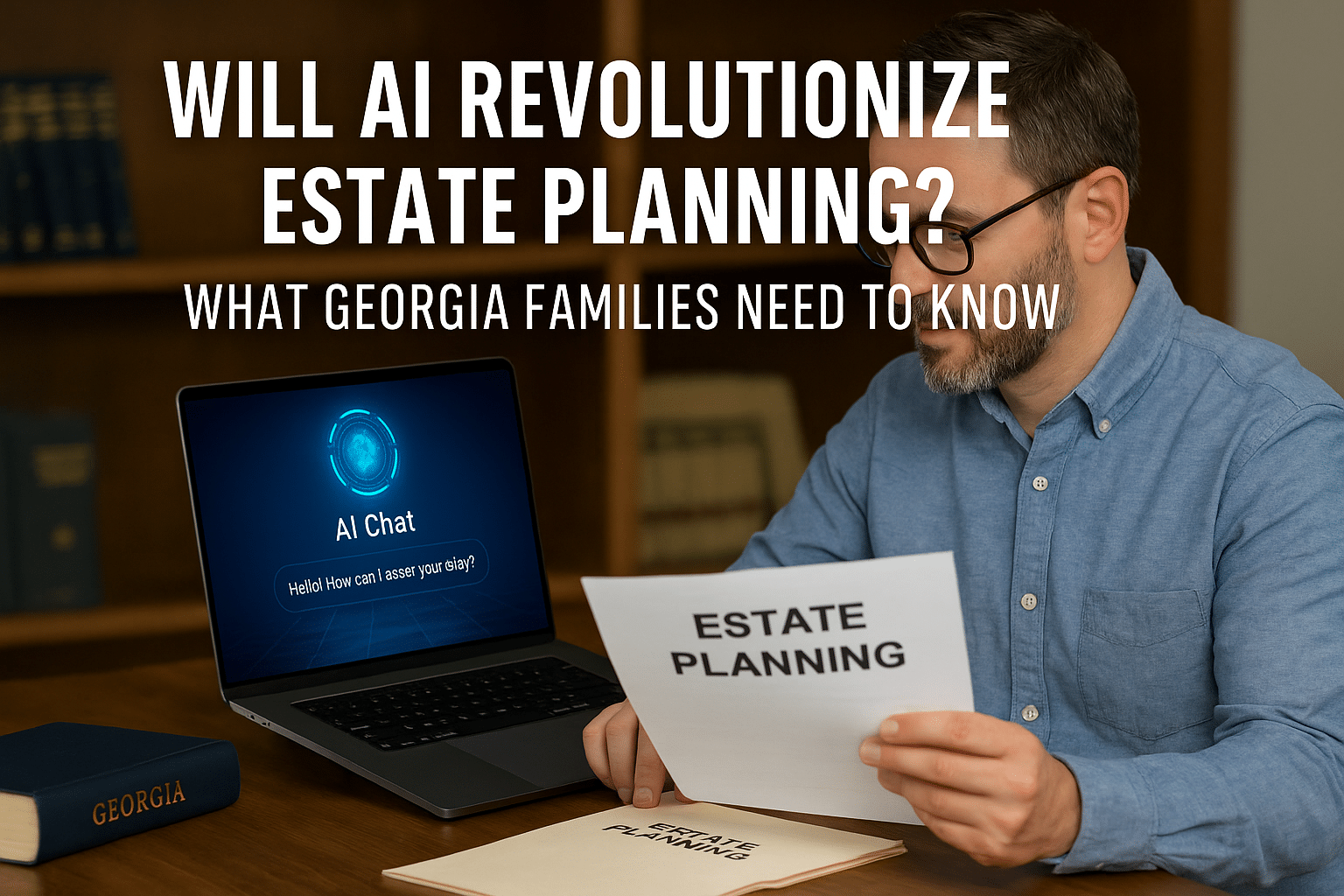Artificial Intelligence (AI) is changing everything—from how we search for information to how we manage finances. But can it really handle something as personal and complex as estate planning?
The short answer: AI can help, but it can’t replace professional legal guidance—especially in Georgia, where state-specific rules, family dynamics, and long-term consequences matter.
Here’s what to know if you’re thinking about using AI to write your will or plan your estate.
What AI Can Do for Estate Planning
AI-powered tools are making it easier than ever to draft simple legal documents. These platforms can:
- Generate a basic will based on user input
- Suggest standard language for powers of attorney or healthcare directives
- Answer general questions about probate and inheritance laws
- Help you inventory your assets and assign beneficiaries
For people with simple estates, no children, and few assets, these tools may seem like a convenient and low-cost option.
But here’s the problem.
What AI Tools Miss
AI tools don’t know your family. They can’t anticipate conflict. They don’t understand Georgia’s unique probate laws or what happens when someone contests a will.
Most importantly: AI can’t catch what you don’t ask. And in estate planning, people often don’t know what to ask.
Here’s what DIY or AI-generated documents often overlook:
- Guardian and conservator issues for minor children
- Complex family structures (blended families, estranged heirs, stepchildren)
- Medicaid planning or long-term care needs
- Business ownership or property held across state lines
- Tax implications of certain asset transfers
- Georgia’s probate and trust administration procedures
👉 See why DIY estate plans often fail in Georgia
The Risks of Relying on AI Alone
A will that’s not valid under Georgia law—or that lacks key provisions—can:
- Be rejected by the probate court
- Lead to costly legal battles among heirs
- Delay inheritance
- Force your family to make tough decisions without guidance
- Leave your assets distributed by Georgia intestacy laws, not your wishes
In short, a “cheap” or AI-generated will can cost your loved ones far more in time, money, and stress later.
Can AI Be Used as a Tool?
Yes—and that’s the better way to think about it.
AI is a tool, not a substitute for real legal advice. It can be useful for:
- Gathering your thoughts and goals before a meeting
- Organizing financial or family information
- Generating questions to ask an attorney
- Exploring what types of documents may be helpful
In fact, some estate planning attorneys (including our office) use AI internally—to enhance research, improve workflows, or draft language more efficiently.
But the final legal strategy? That comes from a licensed attorney who understands Georgia law, your assets, and your relationships.
👉 Learn how to structure your will to avoid inheritance stress
What Should You Do Instead?
If you’re serious about protecting your family, don’t rely on a robot to guess what’s right for you. Work with an estate planning attorney who can:
- Create a custom plan based on your needs
- Spot risks and address them proactively
- Ensure your documents are valid in Georgia
- Help your family navigate probate or avoid it altogether
Let Hurban Law Help You Get It Right—With or Without AI
At Hurban Law, LLC, we don’t fear technology. But we know that no algorithm can replace legal judgment, personal insight, or experience. Whether you’re exploring your first will or updating a complex estate, we’ll guide you through the process clearly and completely.
Contact us today to build an estate plan that stands up to life—and the law.





